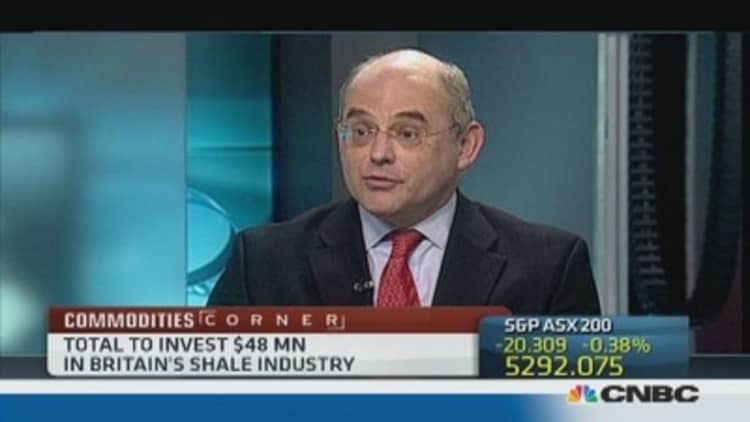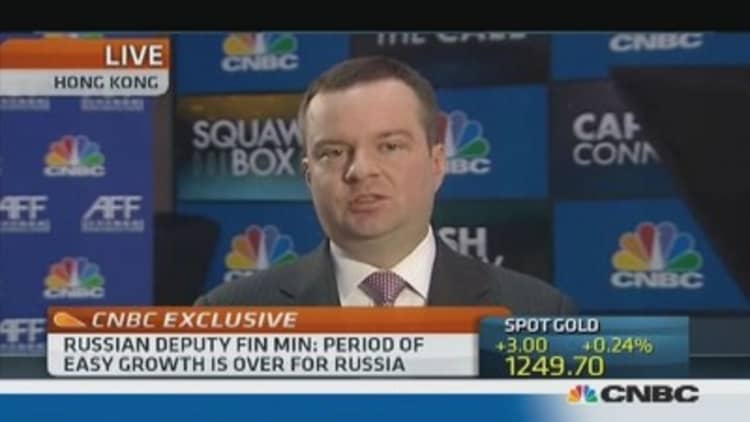The price of oil will come under "serious downward pressure" as the nuclear deal between Iran and six world powers kicks in next week, a leading analyst told CNBC.
In an interim deal struck between Iran and the UN Security Council plus Germany in November, Iran agreed to freeze parts of its nuclear program in return for sanctions relief. Despite criticism of the move, the deal comes into effect on January 20 giving the parties six more months to finalise the pact.
If negotiations to finalise the deal go well, U.S. and European restrictions on Iran's energy sector could be lifted. Because of the sanctions, western energy companies were prevented from dealing with Iran, causing its oil exports to drop by more than half from 2.5 million barrels per day (bpd) to around 1 million bpd.

Brent crude prices for February delivery trended lower towards $107.20 a barrel on Monday morning as investors anticipated a greater supply coming back into the market. This trend could continue provided the deal survives negotiations, one analyst said.
"For the oil market, this could potentially allow visibility to Iranian exports [and their] return to the market - that's about a million barrels per day (bpd) or so that's currently shut off," Neil Atkinson, head of analysis at specialist business information service, Lloyd's List Intelligence, told CNBC Europe's "Squawk Box."
(Read more: Iran puts out the welcome mat for Big Oil)
"That event, in conjunction with other possible supply increases means that at the end of 2014 we could be in a situation where the oil price is under serious downward pressure."
Atkinson said that people who wanted a lower price could well "see their dreams coming true."
He added, however, that shale gas producers in the U.S. who have relied on the price of oil being high in order to attract consumers to the lower price of shale gas, should be "terrified" by the prospect of lower crude oil prices.
(Read more: USshale revolution leaving Europe in the cold)
However, in a move that appeared to undermine Western sanctions against Iran, sources told the Financial Times on Monday that Iran and Russia were negotiating an oil-for-goods swap worth $1.5 billion a month that would enable Iran to lift oil exports substantially.
(Read more: Oil price 'upside risks' remain despite Iran: IEA)

Under the deal, Russia would buy up to 500,000 barrels a day of Iranian oil in exchange for Russian equipment and goods, the FT said citing Russian and Iranian sources close to the barter negotiations.
But if Iran's sanctions are lifted and the price of oil falls, the deal could impact Russia's economy, which relies heavily on energy exports. Russia's deputy Finance Minister, Alexey Moiseev, told CNBC on Monday, however, that Russia had taken a number of steps to mitigate the impact from oscillating and volatile energy prices on the economy.
"We've made a number of serious steps. Measure number one is the so-called fiscal rule which is a rule which prohibits us from spending too much of our oil [and gas] money [and] which explains how and exactly where we cut [spending] if the oil price falls. Secondly, [given] the volatility in the oil price over the last few years , we've seen that a flexible exchange rate works very well for us, and has protected us not only from a fluctuating oil price but also from general market fluctuations," Moiseev told CNBC Europe's "Squawk Box."
"Time will show whether [the measures] are effective," he said.
- By CNBC's Holly Ellyatt, follow her on Twitter @HollyEllyatt



